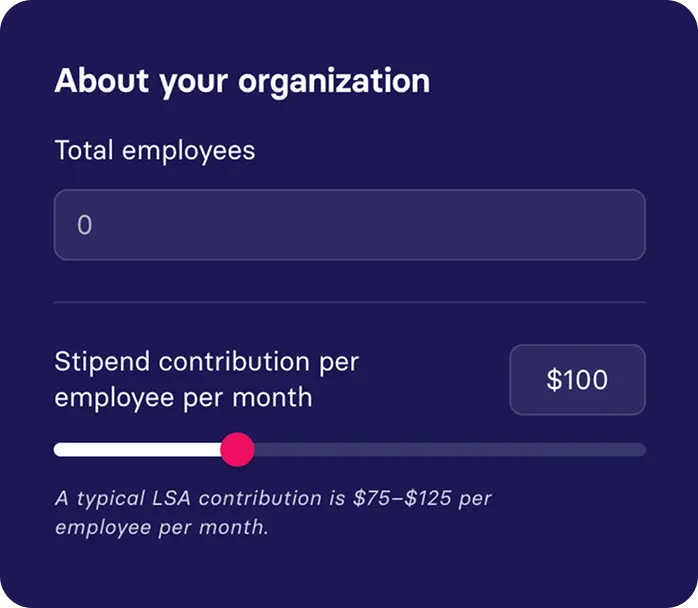In this post
Lorem ipsum dolor sit amet
Lorem ipsum dolor sit amet
Did you know that 50% of Americans are diagnosed with a mental illness or disorder at some point in their lifetime?
In the workplace, access to adequate mental health resources is not always as available as it should be. Because mental health is such a personal issue, many employers struggle to perfect the balance between offering enough support and respecting their employees’ privacy.
Of course, privacy is important — but providing sufficient care is essential. Here’s why mental health is such an important issue in all workplaces (yours included!) and what you can do to address your employees’ needs.
How to address mental health at work
There are plenty of simple ways to improve the well-being of your employees. Here are a few easy to implement ideas if you’re unsure how to get started:
- Promote senior support: Workplace culture often starts from the top down; if employees don’t believe that senior staff members genuinely care about their well-being and mental health, they are less likely to feel comfortable discussing it. Creating a system of senior support and discussing the importance of mental health tells employees that their workplace is a culture of caring, which will in turn improve not only their outlook but also their output.
- Make HR more accessible: Ensure that your employees understand how their HR department can help them in the event of a mental health crisis. Even outside of a crisis, ensuring employees feel comfortable asking for help from HR improves employee engagement and creates a more collaborative culture.
- Create a positive workspace: Research has shown time and time again that employees function better in spaces they feel promote positivity (spaces with lots of natural light, for example). Of course, what’s positive for one office might not be for another — invite your employees to give input on what makes them happiest in their workspace.
- Provide good benefits: This one seems like a bit of a no-brainer, but we’ll go over it in the next section.
How benefits programs can help
A robust benefits program will not only allow your employees the freedom to improve their mental health off the clock but will also help them ease the trials and tribulations of their day-to-day work.
Luckily, tax-advantaged programs like FSAs and HSAs aren’t just good for paying off our deductibles; they can also help to pay for eligible mental health resources, online or otherwise. Here’s what you need to know about how you can spend your dollars to support your mental health:
Eligible costs
There are plenty of surprising items eligible for FSA reimbursement — from sunscreen to OTC menstrual products, many of our day-to-day necessities are reimbursable. The same goes with mental health care; there are plenty of practical costs that will be reimbursable, alongside a minor few that are notably not eligible for reimbursement.
Some eligible mental health costs include:
- Therapy (online and in person)
- Prescriptions
- Psychiatric care
- Occupational therapy
- Some therapy/mental health apps
- Acupuncture
- Hypnotherapy
It’s important to note, however, that for some of the mental health costs outlined above, your administrator may require a Letter of Medical Necessity. If you’re not sure whether a letter is required, don’t be afraid to reach out and ask.
Most forms of treatment are perfectly eligible for FSA reimbursement. With that in mind, you can’t use your FSA to fund therapy that isn’t required for a medical or mental purpose, unless you have the proper documentation — marriage or family counseling, for instance.
Some apps that aid with mental health (like meditation apps) are also not FSA eligible. But with the world digitizing faster than we can keep up, who knows! Maybe your favorite meditation app will be FSA eligible in a few years.
Flexible benefits
When it comes to finding a good benefits program, it can be difficult to know where to start. That’s why Benepass is working hard to make benefits easy. We allow employees to be fully flexible in how they engage with mental health tools. Benepass also provides summary data on engagement, and we suggest ideas to employees based on popular options from other companies, so they don’t have to do the digging.
Your benefits are safe with us — we also work hard to protect the privacy of your employees, verifying transactions ourselves so your employees don’t have to. If you have any questions about how benefits can help improve employees' mental health, or you're interested in how we can help you demystify your benefits package, please reach out at support@getbenepass.com.

.png)


